“Listen to my words, YHWH, consider my lament.
Hear my cry for help…” (Psalm 5:1-2)
We are living in unprecedented times. Not only are we still reeling from the global COVID-19 pandemic, but nationally we are just beginning to reckon with the current social uprising in response to police brutality and systemic racism. People throughout the world are crying out, raising their voices in protest and lament, seeking hope and solace. In so doing, we join the voices of generations past, who sought authentic and creative ways to express their deepest yearnings, turning to their spiritual and cultural traditions for guidance and inspiration.
Ten weeks ago, the two of us—one rabbi and one minister—decided that we wanted to explore the biblical Book of Psalms—a collection of beautiful, gritty, desperate, and uplifting prayer-poems—in our time and place. And so, we conceived PsalmSeason: An Online Encounter with the Wisdom of the Psalms.
Over the course of the 18-week cycle (the numerical equivalent of the Hebrew word for life—chai), a diverse group of religious leaders; cultural critics; musicians; poets; artists; and activists explore the Psalms, bringing these time-worn texts into dialogue with life in the here-and-now. Like the ancient Hebrew writers, we seek to express our anger, dread, and sorrow, while also giving thanks for the preciousness of life and recommitting ourselves to actively work for a more just, compassionate, and sustainable future.
Why is it that so many people have turned to the Psalms over the centuries, particularly in difficult moments? In her elegant introduction to PsalmSeason, Dr. Ellen Davis of Duke University writes that one feature of this biblical book that makes it so compelling is that “the Psalms speak directly from and to the human heart.” Further, as Davis notes, “The book of 150 Psalms speaks with the most consistently personal voice in the Bible, often in the first person (‘I’ or ‘we’).” These ancient Hebrew poets model for us the power of calling out to God, to ourselves, and to our communities in different—often extreme—moments of life.
While it is true that for centuries Jews and Christians have turned to the Book of Psalms, there have been far fewer opportunities for members of these two communities and others to explore these sources together as fellow seekers. What do we share in common? Where do we differ? How might reading these texts through the lens of the “other” impact our understanding of life and our struggles at this time? What do we hear, for example, when listening to the poet Drew Drake’s new lament “Searching My Rage,” which he wrote just days after the murder of George Floyd at the hands of police officers? What do we see when looking at Debra Band’s illuminated painting of the pastoral landscape of Psalm 23? How might the words of Nina Simone’s psalm-like song “Come Ye,” performed by Sweet Honey in the Rock, inspire us with its repeated refrain of “Come ye of hope”?
Throughout the PsalmSeason cycle, we focus on one psalm a week, offering several different forms of commentary—music, poetry, personal reflection, and visual art. In addition, we offer broader reflections on major themes in the Psalms or significant cultural creations inspired by these legendary texts. We also host live events on topics related to the Psalms. We are tremendously grateful to the more than 50 contributors from several different countries that have lent their talents and skills to this project, particularly during such a difficult and precarious moment in human history.
We invite all who visit the PsalmSeason website (hosted on the Interfaith Youth Core’s Interfaith America site) to consider taking three simple actions:
- Reflect quietly on the biblical texts and interpretations offered on our site. What are they key insights or questions that emerge for you as you read today?
- Share your insights and questions with at least one other person. Who might be a helpful companion on this journey? Who might benefit from such a conversation?
- Create your own commentary on the PsalmSeason materials you explore, be it in the form of poetry, music, dance, or drama. How might this process help you grow as an individual and contribute more deeply to a world in dire need of healing?
Please share your experiences on Twitter using #PsalmSeason and tagging us—@millercenterHC and @ifyc—or in a post on our Facebook page.
To paraphrase Psalm 90: may the work of all those working for peace and justice, health and wholeness, be blessed.





